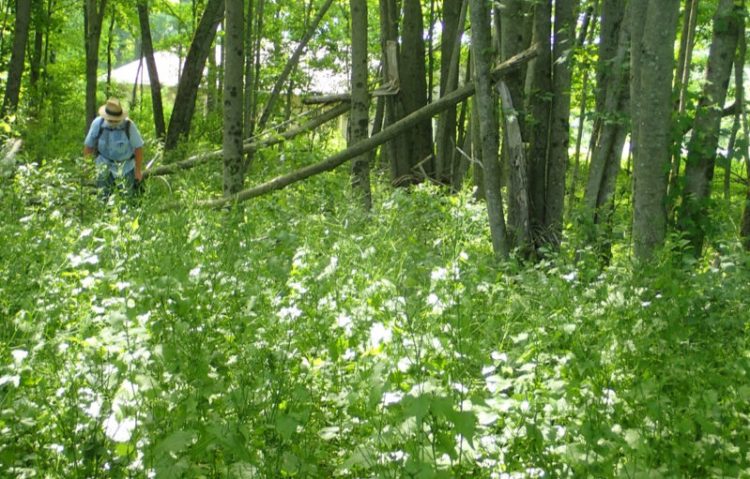Farm and woodland owners and operators in five Maine counties may be eligible to receive a free invasive plant survey and management plan, prepared by a natural resource professional from the local Soil and Water Conservation District. District staff serving Kennebec, Knox, Lincoln, Somerset and Waldo counties are looking for landowners or operators who would like to learn more about the invasive plants on their farms and woodlands, according to a news release from Dale Finseth, of Kennebec Soil and Water Conservation District.
Invasive plants such as Asiatic bittersweet vines, thorny multiflora rose shrubs, sprawling Japanese barberry, and others can create dense tangles in forests, wetlands, and fields, crowding out native plants and young trees. Along forest edges and hedgerows, thickets of invasive shrubs can reduce the area of productive fields. Some invasive plants create habitat for ticks, cause skin rashes, or are harmful if eaten by livestock.
Many farmers and woodland owners know that invasive plants are present but aren’t sure what to do about them. Others may not know how to recognize invasive plants. Having a site visit and survey from the local organization is a chance to talk with a natural resource professional, learn to identify harmful plants, and get guidance on how to manage them. Survey data also help scientists understand invasive plant distribution in Maine because data are contributed to the online mapping tool iMapInvasives (imapinvasives.org), the central repository for invasive plant data in Maine.
According to the release, this service is free to farm and woodland owners or operators because of a grant from the United States Department of Agriculture — Natural Resources Conservation Service, administered by the Maine Natural Areas Program at maine.gov/dacf/mnap in the Maine Department of Agriculture, Conservation and Forestry. The project also is funded in part by the Maine Outdoor Heritage Fund at maine.gov/ifw/mohf, in which proceeds from the sale of a dedicated instant lottery ticket are used to support outdoor recreation and natural resource conservation. Space is limited and landowners/operators must meet basic USDA – NRCS eligibility requirements. Site visits will be conducted during the growing season, but sign ups are open now.
Participating landowners and operators are encouraged to act on the management plans they receive by implementing invasive plant treatments. Treatment funding may be available by applying to the USDA NRCS Environmental Quality Incentives Program through the local USDA NRCS office at nrcs.usda.gov.
To learn more and sign up for a free survey and management plan, contact the SWCD in the county where the farm or woodland is located:
• Somerset County: Joe Dembeck at jdembecksc15@gmail.com or 474-8323, ext. 3.
• Kennebec County: Dale Finseth at dale@kcswcd.org or 621-9000.
• Knox and Lincoln counties: Rebecca Jacobs at rebecca@knox-lincoln.org or 596-2040.
• Waldo County: Aleta McKeage at aleta.waldosoilandwater@gmail.com or 218-5311.
Comments are not available on this story.
Send questions/comments to the editors.


